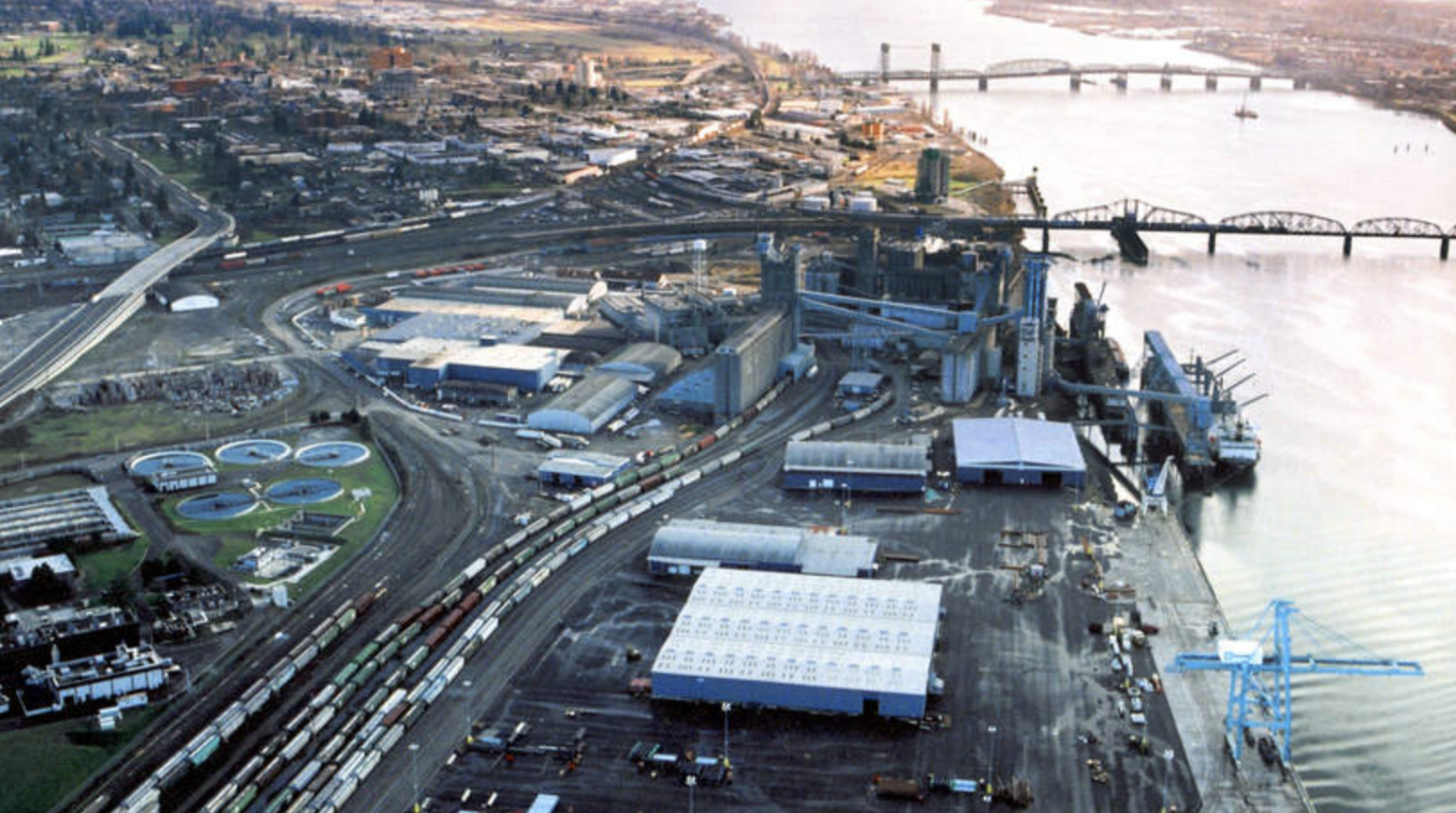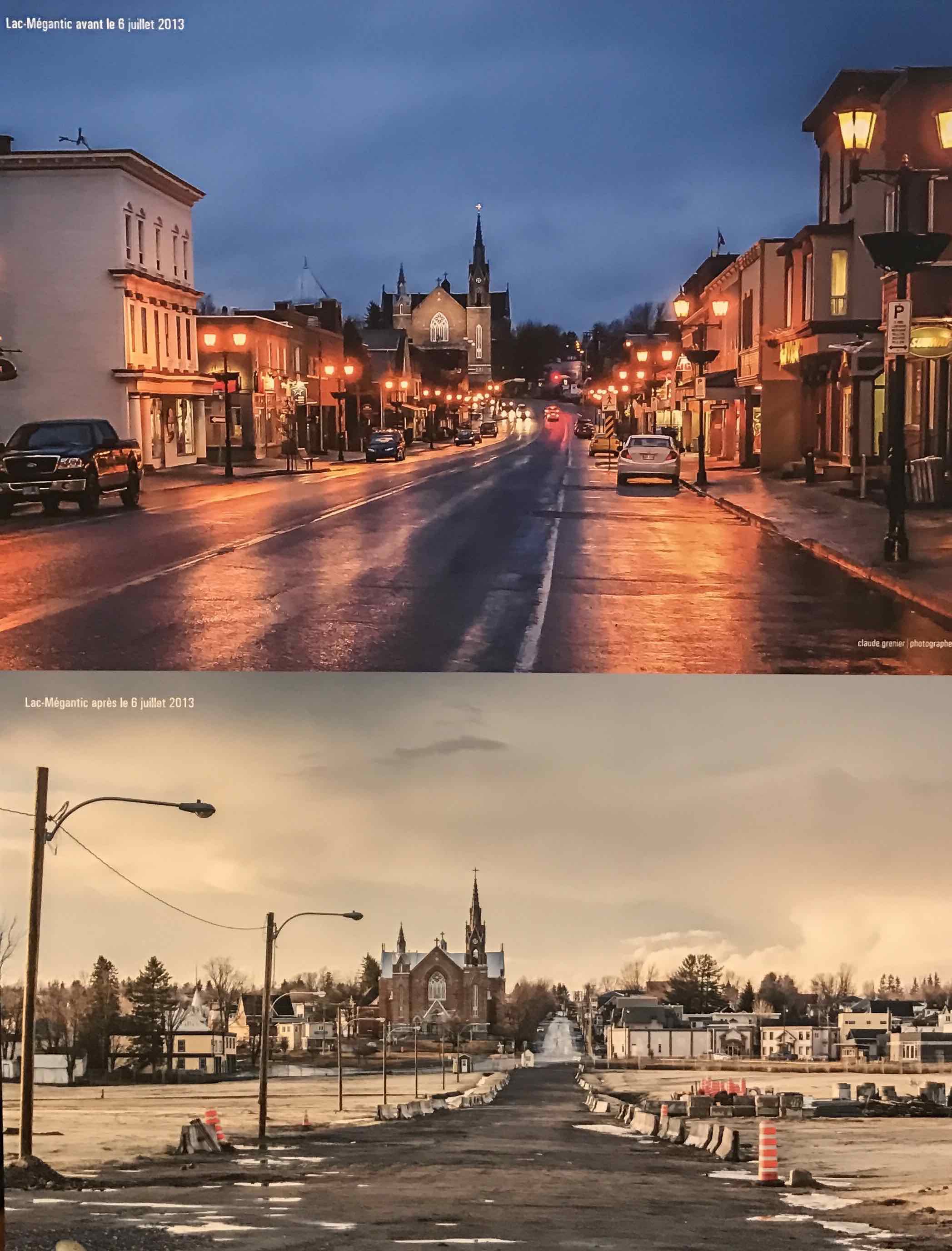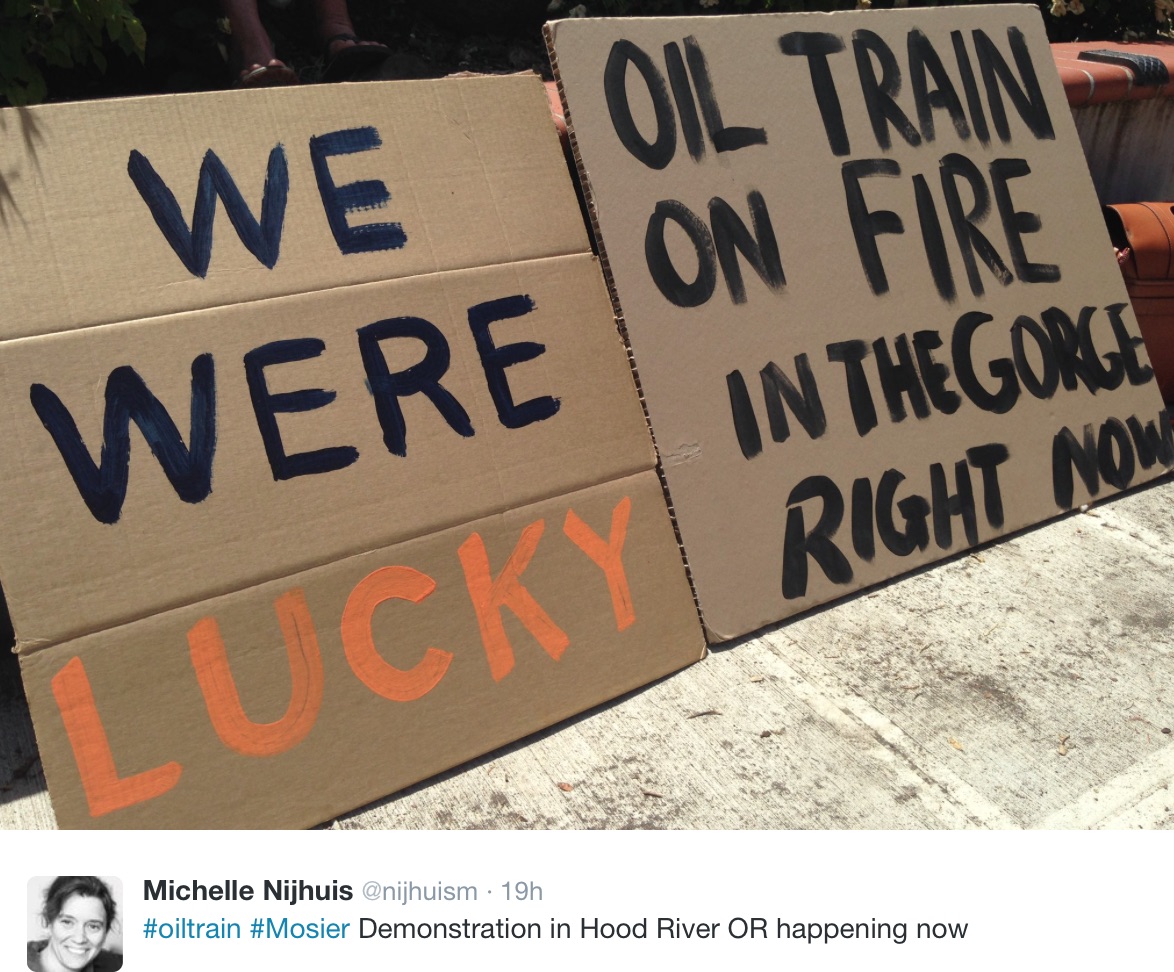On January 29, Washington Governor Jay Inslee rejected a permit required for Tesoro-Savage to build the Vancouver Energy oil-by-rail facility, the largest such project in the nation, at the Port of Vancouver, along the Washington-Oregon border. The governor explained the basis of his decision, which followed a several year long process, in a letter to the state Energy Facility Site Evaluation Council:
“When weighing all of the factors considered against the need for and potential benefits of the facility at this location, I believe the record reflects substantial evidence that the project does not meet the broad public interest standard necessary for the Council to recommend site certification.”
Vancouver Energy, a joint venture of Tesoro and Savage, has 30 days to file an appeal and released a statement on January 30, saying, “we are evaluating our options for next steps.” Local environmental groups, however, were quick to applaud the news.
“This project was absurdly dangerous and destructive, and Governor Inslee saw these risks clearly,” said Dan Serres, Conservation Director of Columbia Riverkeeper. “The threat of an earthquake or accident creating an oil spill in the Columbia River poses far too great a risk to the Columbia, its salmon, and its people.”
Serres and the governor both outlined why many oil-by-rail projects have been fiercely opposed by local communities: the projects offer huge risks and very little reward for the communities where they are located. The Vancouver Energy terminal would have resulted in oil train traffic hauling more than 131 million barrels of oil along the Columbia Gorge and transferred to ships bound for West Coast refineries.
The governor’s decision came a week after three rail employees involved in the deadly Lac-Mégantic, Quebec, oil-by-rail disaster were acquitted, a situation which makes the potential risks of moving explosive oil through communities readily apparent.
Lac-Mégantic before and after the oil train explosion. Credit: Claude Grenier, Studio Numéra, Lac-Mégantic.
In Washington they don’t need to look as far as Lac-Mégantic to see the risks of moving oil-by-rail.
In 2016 a train carrying Bakken oil through the Columbia River Gorge derailed and caught fire in Mosier, Oregon. By all accounts Mosier was very lucky that day and avoided a much larger disaster. The proposed Tesoro-Savage facility would have meant many more oil trains moving through the Columbia River Gorge, which straddles Washington and Oregon.
Signs from protesters after Mosier, Oregon’s 2016 oil-by-rail accident.
Listening to the Will of the People
One could argue that with this decision, Governor Inslee is simply doing his job by representing the people he serves. While the final decision about this project’s future was the governor’s to make, in November 2017 the voters of Vancouver were given an opportunity to voice their opinion about this project at the ballot box — and the vote wasn’t even close.
Last year two candidates — one for the oil train project and one against — ran for the open seat on the Port of Vancouver board of commissioners, which would be charged with decisions related to the proposed Tesoro-Savage facility. Don Orange, who opposed the oil-by-rail project, won that election with almost 65 percent of the vote.
Orange was elected despite his opponent receiving over $600,000 in campaign funding, with 90 percent of it coming from the companies behind the oil-by-rail facility and its backers. That’s a lot of money pouring into a campaign for an elected position that pays less than $20,000 a year.
Earlier this month Commissioner Orange and the other two port commissioners voted to not renew the company’s lease if the project did not have all required permits and licenses by March 31.
Big Victory Caps a String of Success for Oil-by-Rail Activists
By itself, the rejection of the Port of Vancouver oil-by-rail facility would represent a major victory for activists opposing oil and rail projects, as it would have been the largest facility of its kind in the nation. However, the outcome caps a string of wins for West Coast communities fighting against new oil-by-rail facilities in their midst.
Last year a California court ruled that an oil refinery and rail project in Bakersfield could not proceed because its environmental review was inadequate.
That was preceded by the Washington Supreme Court voting unanimously to deny an oil-by-rail project in Grays Harbor because that project lacked a comprehensive environmental review and did not consider the Ocean Resources Management Act.
Also in 2017, a proposed Phillips 66 oil-by-rail project in California was voted down by the San Luis Obispo County planning commission.
In 2016 the city council in Benicia, California, voted unanimously to reject Valero’s proposed oil-by-rail project. The Benicia project also resulted in another victory for local communities when the Surface Transportation Board ruled that local communities had the right to weigh in on oil-by-rail projects proposed in their area.
The Benicia decision was a situation that Yolo County Supervisor Don Saylor acknowledged had national implications. “The community of Benicia, in the crosshairs of history, made one of those decisions that will make a difference for the country. They stood up and said the safety of our communities matters,” he said.
That decision gave communities the right to say whether or not they wanted to absorb a large part of the risks of oil-by-rail projects when it was oil and rail companies reaping the rewards.
The Fight Continues
In June of this year I wrote about how the oil industry had long-term plans to use rail to move oil to West Coast refineries. At the time, I mentioned that Kevin Sheys, an industry lawyer speaking to the 2016 Energy by Rail conference, made a presentation that included a slide stating that that the biggest threat facing the industry was “Local Regulation of Crude Oil/Ethanol Unit Train Unloading Projects.”
Unhappy with local communities having some say in such matters, Sheys said, “I think that in the next four years, there is an issue that the administration will have to deal with … and the issue is local regulation of crude oil and ethanol unit train unloading projects.”
As Governor Inslee and the state of Washington have shown, Sheys prediction seems to be spot on.
Updated February 5, 2018: Vancouver Energy released a statement commenting on this decision on January 30.
Main image: Port of Vancouver, Washington. Credit: Washington State Department of Transportation
Subscribe to our newsletter
Stay up to date with DeSmog news and alerts









